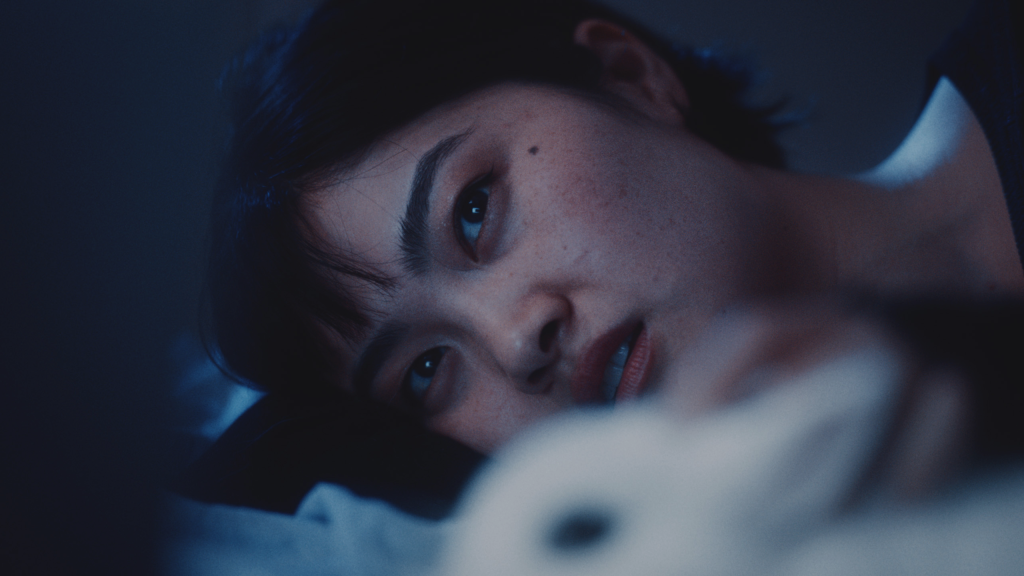The World Is Not Hers, For This World Is Not Enough – MulanIFF2025
Author: SHEN Wei
Chinatown Cha-Cha and Bunnylovr may seem totally unrelated—in terms of genre, narrative form, and technique––but I sense a quiet and moving resonance between the two, one that spans generations and speaks to shared, if hidden, experiences.

First, about the Chinese diaspora. Chinatowns were born not out of celebration, but exclusion. In earlier decades, Chinese immigrants were often barred from working outside of Chinatowns. The women in Chinatown Cha-Cha, performing onstage at the San Francisco Chinatown, were similarly confined—unable to grow beyond the borders of that designated zone. Few know that Toronto’s Old Chinatown once included what is now the City Hall and Nathan Phillips Square, but starting in the 1950s, it was conveniently pushed out in the name of development. Although the Chinese Exclusion Acts have long been repealed, there remain moments that catch you off guard—like Rebecca in Bunnylovr, brushed against on the train platform only to be met with a racist slur; or the incident in 2022, when dorm staff at U of T handed out “hell money” in red envelopes to students for Lunar New Year. Being Chinese still often means being “the other.” Behind the hypocrisy of equality and inclusion, our position remains one of precarity. Many of us may hold more respectable jobs today, but in the small, steady stream of daily life, there are always sharp stones that slice through the surface calm.

Second, about women’s experiences. In Chinatown Cha-Cha, the women faced an audience drawn by fantasies of the “mysterious Orient.” There were few viable paths for economic independence. Sixty some years later, we meet the camgirl Rebecca in New York, whose story reflects the reality faced by many Gen Z women today. A similar truth is depicted in Sugar Babies, a documentary that also premiered at this year’s Sundance. It follows Louisiana small-town girls who, after losing scholarships and jobs during the pandemic, turned to online chats with men for cash to pay tuition and finish college. These young women navigate the digital world with care, trying to survive while maintaining some semblance of choice.
Today’s technology offers astonishing convenience—life updates so quickly that the human within it can feel optional. But this is not new. The postwar 1950s were also a time of economic boom, technological innovation, and social upheaval. Then, as now, these appearances mask widening inequality and fracture. In nations ridden with victory speeches, some lives continue to exist under the gaze of otherness—forced to accept objectification, yet still pushing back. These women are not merely footnotes to history; they are part of it. And in the tiniest cracks of the system, they are carving out small beams of sky for themselves.




